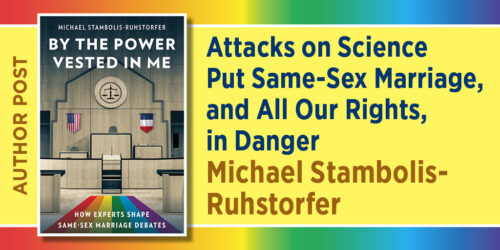Catholics Without Popes — Julie Byrne
Amid all the anticipation, excitement, and, to some, endless coverage of the election of a new Pope, Julie Byrne, author of O God of Players: The Story of the Immaculata Mighty Macs and The Other Catholics (forthcoming), asks should there be a Pope at all? And, does he necessarily have to be the center of the Church?
In her post, Catholics without popes, Byrne points out that even at the time that papal infallibility became a doctrine during the 1870-1871 council of Vatican I there were dissenters. Splinter groups in Germany and Austria formed the Old Catholic Church, established a leadership council of bishops, almost immediately celebrated mass in the vernacular, and ultimately allowed priests to marry.
Pockets of Old Catholicism still exist in countries in Europe as well as having churches in the United States. Other Roman Catholics who do not accede to papal centrality include many Latinos in the United States, who make the Virgin Guadalupe the center of their faith.
Even among those who still consider themselves Roman Catholics, whether liberal or conservative, there exists doubts about papal authority:
But even among those who stayed with Rome, there exist hugely differing views on the papacy. These Catholics take sides not on Vatican I but on Vatican II, the 1960s council that gave the church a modern makeover.
On the strong right of the U.S. church are opponents of Vatican II, who say the council’s documents are so out of step with tradition that its leadership must have been hijacked. John XXIII, the convener of Vatican II, was no true pope. Starting with him, the Roman popes have been impostors.
On the strong left are progressive Roman Catholics like Wills, whose pursuit of “the spirit of Vatican II” goes so far as to question the need for priests and popes at all.
The disagreements expose a wide and diverse Catholicism, in which overall affirmation of Vatican authority has declined. According to one recent survey fewer than three out of ten U.S. Roman Catholics says that the “teaching authority claimed by the Vatican” is “very important” to them.





